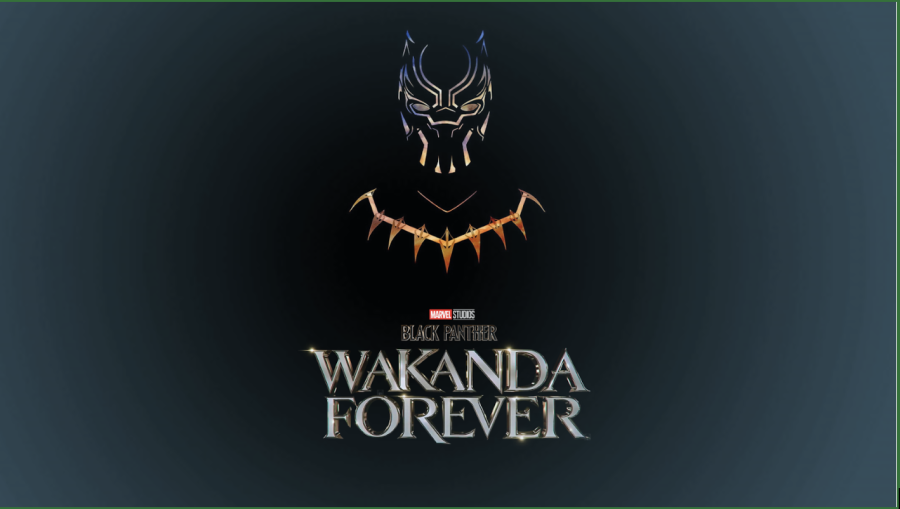Black Panther: Wakanda Forever honors Chadwick Boseman’s legacy in powerful, tear-jerking sequel
The sequel film to Black Panther celebrates Boseman’s life as audiences mourn his passing.
The highly-anticipated sequel film Black Panther: Wakanda Forever released in theaters globally on Nov. 11. The action-packed film follows Shuri (Letitia Wright) as she deals with the loss of her older brother, T’challa (Chadwick Boseman). The biggest concern with the movie was how it would handle the death of the previous actor for Black Panther, Chadwick Boseman, who passed away in August 2020.
The movie begins with Shuri panicking in her laboratory, desperate to save her brother’s life, but to no avail. The film never explicitly reveals the actual cause of T’Challa’s death, which feels like the better choice. Wakanda holds an enormous funeral for its fallen leader, and the people dance to celebrate his life.
T’Challa’s mother, Queen Ramonda (Angela Bassett) takes the throne and works with Shuri, Okoye (Danai Gurira), and M’Baku (Winston Duke) to protect Wakanda from interfering world nations.
Wakanda discovers the existence of an underwater nation known as Atlantis, governed by leader Namor (Tenoch Huerta). Shuri meets Riri Williams (Dominique Thorne), an intelligent engineer from MIT, who poses a threat to Namor because of her cooperation with the US government to retrieve vibranium. Due to this, Shuri must protect her from Namor. As tensions rise between the two powerful nations of Wakanda and Atlantis, they must prepare for war against each other.
Throughout the film, Shuri struggles with the loss of her brother. However, in the end, Shuri finds closure and reflects on the life of T’Challa, as the audience reflects on the life of Chadwick Boseman.
One great aspect of the film was the acting. All of the actors played their roles well, especially Letitia Wright and Tenoch Huerta. They were able to convey their emotions so effectively, and many times their performance evoked strong emotions in the audience, such as the scenes where Shuri mourns for her brother.
Another great element of the movie was the visual effects. Recently in Marvel, the visual effects have been very substandard and cheap-looking. However, it was pleasing to see lots of effort put into the CGI and VFX for many of the action scenes this time.
The film implemented a very enjoyable soundtrack and musical score. All the songs played were perfectly placed at the right scenes. Some song highlights were “Con La Brisa” by Foudeqush and Ludwig Göransson, and the credits song “Lift Me Up” by Rihanna. The fusion of Mexican and African musical elements into the soundtrack mirrors the representation of Mexican and African culture in the movie.
One issue with the film was that at some points it dragged out for too long. There were a handful of scenes that felt like they could have been shortened or cut from the movie, which wouldn’t have affected the plot.
At the beginning of the movie, the classic Marvel title card plays, but instead of a normal introduction, the audience see clips of Chadwick Boseman’s roles in the MCU, and instead of the usual anthemic theme, there is silence to honor Boseman.
Overall, Wakanda Forever effectively honors Boseman’s legacy. There was no scene in the movie where it felt that they were attempting to exploit his death. Rather, the film properly addressed his passing by not shaping the entire plot around his death, but at the same time using the difficult subject to push forward a message about grief.
Although there is plenty of action and comedy throughout the film, it is also an emotional rollercoaster about healing after loss. With poignant use of music, acting, and the overarching context of Chadwick Boseman’s passing, Black Panther: Wakanda Forever turned out to be a thrilling yet heartwarming story.
Your donation will support the student journalists in the AVJournalism program. Your contribution will allow us to purchase equipment and cover our annual website hosting costs.

